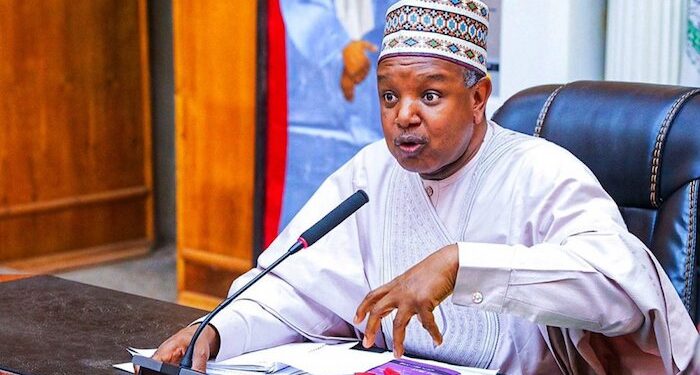Senator Abubakar Bagudu, the Minister of Budget and Economic Planning, affirmed that despite economic hardships, the federal government has prioritized funding for the nation’s energy transition program. Speaking at a conversation titled “Unlocking Climate Finance: Actionable Pathways for Nigeria’s Low Net Emissions Growth,” organized by the Africa Policy Research Institute (APRI) and Enzi Ijayo Africa Initiative in Abuja, the Minister, represented by Special Assistant Bolaji Onalaja, emphasized the significance of climate action for all governments, particularly Nigeria.
Bagudu highlighted Nigeria’s vulnerability to climate change, citing instances such as desertification in the Lake Chad Basin, mangrove forest degradation, and devastating floods. He underscored the government’s commitment to raising financing for the energy transition, despite facing fiscal challenges and other short-term priorities.
The Minister noted President Bola Ahmed Tinubu’s administration’s consistency in prioritizing climate action, including the inclusion of an energy transition fund and the implementation of the Presidential CNG initiative in the 2024 budget.
In his opening remarks, Olumide Abimbola, the Executive Director of APRI, emphasized the immense damage inflicted by climate change on lives and livelihoods, particularly in Africa. He stressed the need for African countries, such as Nigeria, to lead in shaping climate transition pathways aligned with local realities and development priorities.
Abimbola highlighted the changing landscape of finance and global geopolitics, where climate and ESG considerations are increasingly vital in accessing financing. He urged Nigeria to navigate between reducing fossil fuel dependence and accelerating renewable energy investments.
Abimbola emphasized the importance of reflecting internally and evaluating actionable pathways for Nigeria’s Low Net Emissions Growth. He posed critical questions regarding Nigeria’s approach to climate transition, emphasizing the need for strategies that align with development priorities and incorporate resilience to climate impacts.
In conclusion, Abimbola stressed the importance of designing flexible short-, medium-, and long-term strategies and balancing adaptation with mitigation efforts. He called for a focus on consumer-led promotion of technology products and policy-driven prescriptions to effectively address climate challenges in Nigeria.


